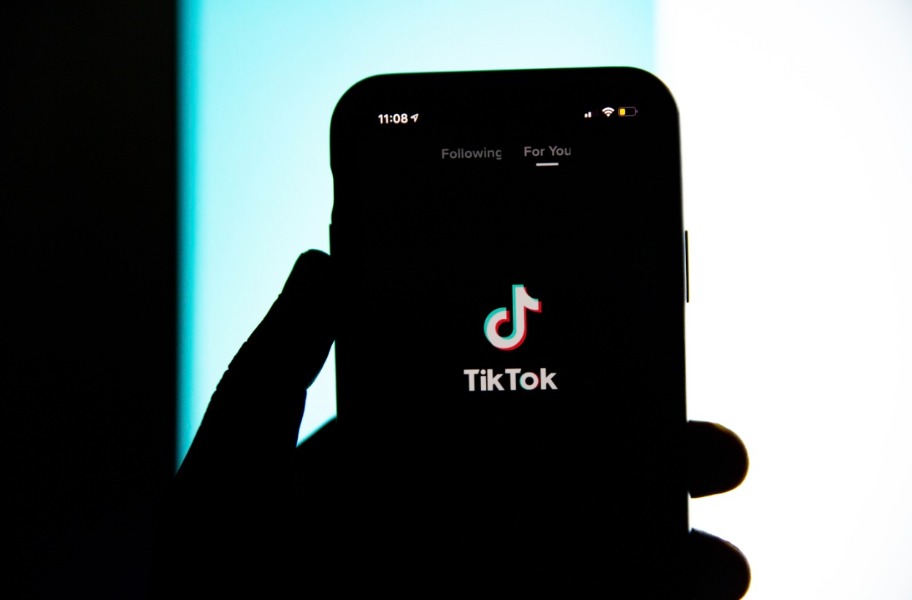Targeting TikTok
Whether Congress can single out TikTok remains an unanswered constitutional question.

Published by The Lawfare Institute
in Cooperation With

In its lawsuit currently before the U.S. Court of Appeals for the D.C. Circuit, TikTok asserts that Congress’s effort to prohibit its use in the United States under its current ownership is unprecedented. But that’s not quite right. TikTok’s basic argument—that it has been targeted by legislation due to suspicions of its disloyalty—is surprisingly common. Whatever the merits of TikTok’s position in this case, the Supreme Court would be well-advised to provide guidance about whether, if ever, legislative targeting is unconstitutional.
Targeted Legislation
In the Protecting Americans from Foreign Adversary Controlled Applications Act (PAFACA), Congress prohibited app stores from distributing or updating TikTok. The prohibition, which will come into effect within the year if legal challenges against it fail, can be avoided if TikTok is sold and is no longer controlled by a foreign adversary, as defined in the statute. The reason that Congress singled out TikTok is clear from both the legislation itself and the legislative history leading up to its passage: TikTok is perceived to be controlled by China, beholden to the Chinese Communist Party, and used as a conduit for carrying U.S. data to the government of China.
Although a federal prohibition on TikTok itself may be new, there is something familiar about the scenario that is playing out, first in the legislature and now in the courts. Consider the story of TikTok so far: A high-profile and successful company draws scrutiny from the political branches; the political branches overtly or implicitly suggest that the company is politically disloyal; the legislature targets the company for special burdens that do not appear to apply to similar companies; and the company challenges the constitutionality of the targeted legislative provisions.
When viewed in this way, the TikTok ban does have recent and closely analogous precedents. In 2019, Congress prohibited federal agencies from entering into contracts with telecommunications equipment manufacturer Huawei for telecom equipment. In the lead-up to the ban on federal purchases of Huawei-manufactured goods, some members of Congress suggested that Huawei was targeted because of political disloyalty. Sen. Tom Cotton (R-Ariz.) called Huawei “untrustworthy” and an extension of the Chinese Communist Party. Sen. Chuck Schumer (D-N.Y.) stated that Huawei was part of China’s efforts to “steal our private data.”
And in a factually different but conceptually related event just last year, the Florida state legislature voted to dissolve the Reedy Creek Improvement District, Disney’s local governing jurisdiction. As Disney alleged in a complaint filed against Florida officials, it is widely believed that Florida targeted Disney because of its disloyalty to Florida’s governor. Specifically, the statute targeting Disney came on the heels of Disney’s criticism of the Parental Rights in Education (Don’t Say Gay) law—legislation supported by Florida’s Gov. Ron DeSantis. Perhaps most saliently, a sponsor of the bill to dissolve Reedy Creek boasted: “[T]his bill does target one company. It targets the Walt Disney Company.”
There are factual differences among the situations involving TikTok, Huawei, and Disney, to be sure. The TikTok and Huawei statutes sprang from national security concerns while the Disney statute involved a dispute over domestic policy. On the other hand, TikTok and Disney’s challenges related to the freedom of speech of private parties, while Huawei’s challenge concerned the sale of equipment to federal agencies.
Equally varied are the suite of constitutional provisions implicated by each company’s legal challenge. Huawei relied almost exclusively on the Bill of Attainder Clause. By contrast, Disney asserted First Amendment, Takings Clause, Due Process, and Contracts Clause counts. And TikTok’s challenge focuses almost exclusively on First Amendment arguments, although it also briefly mentions the Bill of Attainder, Equal Protection, and Takings clauses as well.
The Uncertain Legal Status of Targeted Legislation
Despite the legal and factual differences distinguishing the Huawei, Disney, and TikTok situations, they all raise a common question: When is legislative targeting to reach an individual, whether a natural person or company, unconstitutional?
As recent experiences with Huawei, Disney, and now TikTok reveal, this is not a hypothetical question. When exercising their power to enact laws, legislatures normally pass laws that act on classes of individuals. That is, statutes tend to be impersonal, general, and prospective. Because statutes describe conduct rather than individuals, no individuals are necessarily excluded from or included in a class created by a statute until they engage in the conduct described. Although this impersonality, generality, and prospectivity are the norm, sometimes legislatures target an individual—often a company but sometimes a natural person. When a statute does target an individual, it raises the suspicion that some unseemly motive, like animus or favoritism, is responsible for the targeted treatment. Indeed, targeted legislation has long been associated with a host of legislative pathologies, including corruption, indefensible inequalities, and separation of powers violations.
The Supreme Court has been equivocal in its treatment of statutes that target individuals. In the canonical case of Hurtado v. California, the Supreme Court broadly criticized targeted legislation, noting that “not every act, legislative in form” can be considered “law.” Indeed, “a special rule for a particular person or a particular case,” including “acts of confiscation, acts reversing judgments, and acts directly transferring one man’s estate to another,” are simply excluded from its definition. More recently, and more modestly, the Supreme Court held in Olech v. Willowbrook that although the government is permitted to create reasonable classifications, a person may not be singled out as a “class of one” by government action if the targeted treatment is “irrational and wholly arbitrary.”
But these statements calling into question the validity of targeted legislation are hard to square with other Supreme Court cases that seemingly deny wholesale the legal infirmity of targeted laws. In Bank Markazi v. Peterson, the Supreme Court was faced with a statute that deemed assets of Bank Markazi, the Central Bank of Iran, to be the assets of the country of Iran for the purposes of satisfying outstanding judgments, but only for particular cases pending in the federal courts.
The Court upheld this targeted statute, rejecting the central bank’s position that the statute was unconstitutional because of its specificity. Instead, the Court noted that “the assumption that legislation must be generally applicable,” is “flawed.” The Court continued: although “legislatures usually act through laws of general applicability, that is by no means their only legitimate mode of action.” Citing examples of particularized laws that have been held constitutional (but silent on cases like Hurtado), the Court held that “singling out” an individual is not enough to render a statute invalid.
TikTok and Targeted Legislation
As the D.C. Circuit considers TikTok’s petition to invalidate PAFACA, eyes are turned already to the Supreme Court, which may well be called on to resolve this dispute. If the Court does weigh in, it should take the opportunity to resolve conflicting signals about whether, if ever, targeted legislation is constitutionally infirm. Providing guidance about the constitutionality of targeted legislation would help resolve the current dispute over TikTok, of course, which is important in its own right because of TikTok’s cultural and economic significance. Moreover, resolving the tension between cases like Olech and Bank Markazi would provide guidance to lower federal courts and state courts that will doubtlessly be called on to resolve questions of legislative targeting in the future. Perhaps most importantly, if the Court clearly articulates whether and how targeted legislation can run afoul of the Constitution, it can provide guidance to Congress and state legislatures, informing how they can structure laws to avoid constitutional challenges down the road.
None of this should suggest that the question of whether TikTok has been unlawfully targeted is easy to resolve, even if the Court does clarify a constitutional value that disfavors targeted legislation. For one reason, it’s not quite accurate to say that TikTok was “singled out” by PAFACA. Although the statute does indeed name TikTok and related entities by name, it also specifically authorizes the president to add other applications to the list covered by the statute. In this sense, the act could be seen as prefiguring a general policy rather than singling out TikTok.
For another reason, even if the Court does recognize a value that disfavors targeted legislation, it would have to weigh that value against national security and foreign policy concerns. It is unlikely that the Court would deny Congress the power to distinguish between, say, China and Canada with respect to foreign relations. Accordingly, it may be difficult for the Court to explain why it may deny Congress the power to treat TikTok differently than a company like TransCanada.
Finally, even national security issues aside, the Court would face difficult conceptual problems fashioning a constitutional principle that disfavors targeted legislation. Sometimes, a problem calls for individualized treatment because the source of a problem is unique. When the source of a problem is unique, it would be illogical for the legislature to lump it together with other things. Other times, targeted legislation can be used to correct omissions or gaps created by the generally applicable law. Under these circumstances, it could be counterproductive to legislate more generally. For these reasons, although the Court should consider clarifying the constitutionality of targeted legislation, it should do so carefully, cognizant of the tricky doctrinal and practical problems such clarification might create.




